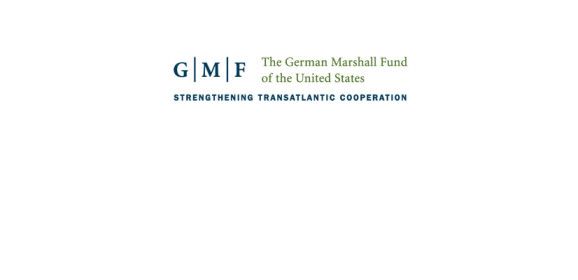Section: The German Marshall Fund of the United States (USA)
Freeze the Belarus Sanctions, But Don’t Leave Civil Society out in the Cold
Transatlantic TakeBERLIN—The not-exactly democratic, but this time peaceful, reelection of Belarusian President Alexander Lukashenko this weekend was followed by an expected announcement that EU sanctions will be suspended for four months. Even if the West has many reasons to attempt a pragmatic mending of its relations with Minsk, it should be...
Is Vladimir Putin Trying to Teach the West a Lesson in Syria?
SOFIA, Bulgaria — Last week, after Russian planes bombed antigovernment forces near the Syrian town of Homs, a senior American official complained to me: “What Russia is doing in Syria is not an effort to fight the Islamic State; it is not old-fashioned realpolitik. It is not even a cynical attempt to make us forget about Ukraine. Putin simply...
European Union. Between permanent crisis and “quiet superpower”
On September 21, 2015 Daniela Schwarzer took part in a panel discussion on „The European Union: Between ongoing crisis and silent superpower“ in Berlin, organized by the Max Weber Foundation. Together with Christian Tomuschat (Berlin-Brandenburg Academy of Sciences and Humanities), Martin Baumeister (German Historical Institute Rome) and Miloš...
Russia Bridges A Transatlantic Trust Divide
In his speech before the United Nations General Assembly last week, Russian President Vladimir Putin repeatedly called for international cooperation based on common interests, underlining that possible disagreements and compromise-based solutions are the core of international relations. Credit should be given where it is due: Russia’s own...
Partners in Leadership? Germany and the United States 25 Years After Unification
Transatlantic TakeWASHINGTON—President George HW Bush called for Germany to be a Partner in Leadership with the United States in May 1989, six months before the fall of the Berlin Wall. He did this in anticipation of the changes that were building, sensing that with the end of the Cold War, Germany would be the central power in Europe. Chancellor...
The Politics (and Geopolitics) of TPP’s Prosperity Promises
One way to make sense of the current world is to measure the progress of rules-based order versus coercion-based disorder. The latter category includes the collapse of state structures in the Middle East at the hands of violent extremists, Russia’s invasion of Ukraine, and China’s territorial revisionism in maritime Asia. If final...
Europe’s Next Problem: U.S. Sanctions Against China
BERLIN—During the last two weeks, it has been widely reported that the U.S. government has been developing a package of unprecedented economic sanctions against Chinese companies and individuals it alleges have benefited from cybertheft by their government. There seems to be a consensus in the United States behind a tougher response to Chinese...
Europe’s Refugee Crisis and the Unravelling of the Union
BRUSSELS—Turkey, with a population of 75 million, is hosting around 2 million refugees from the ongoing wars in Syrian and Iraq. Lebanon, with less than 5 million citizens, is hosting over 1 million. Jordan, population 6.4 million, now hosts close to 1 million. These well-known figures show how the series of disputes among European...
Judy Asks: Should the West Work With Russia on Syria?
By massively boosting its military presence in Syria over recent weeks, Russia has created irreversible facts on the ground. It has done so to demonstrate that Russia reserves the right to be involved in resolving any conflict or crisis, wherever in the world it may occur. The Kremlin sees this indispensability—together with its sphere of...
Putin Losing in Ukraine, Looks to Syria
In Ukraine, the Kremlin’s overarching goal has been to bring that country back under Russian control. But as Ukraine has become a stronger state that is integrating itself with the West, the likelihood for the Kremlin’s success is getting smaller every day. In order to distract from this strategic defeat, Russian President Vladimir...


